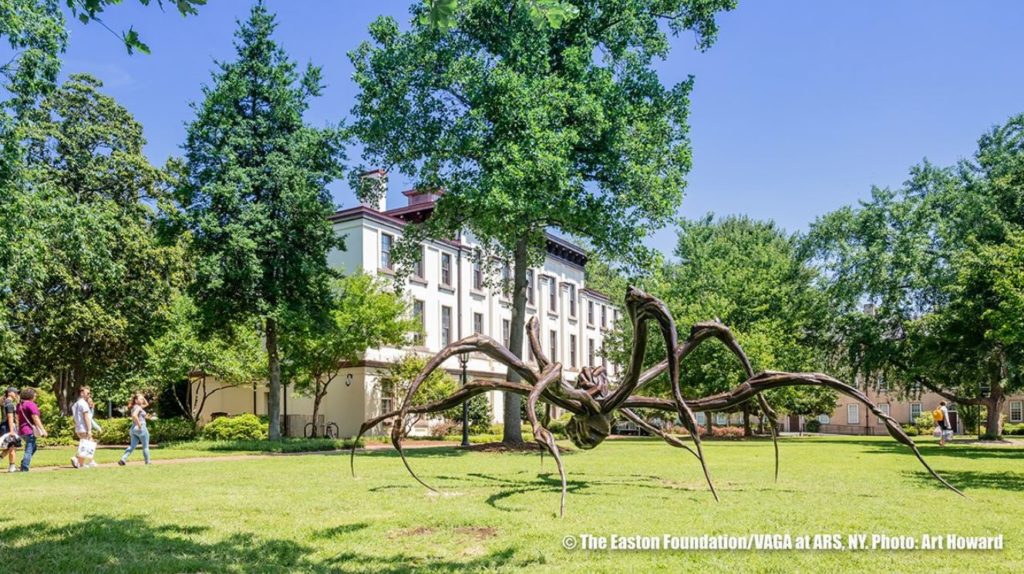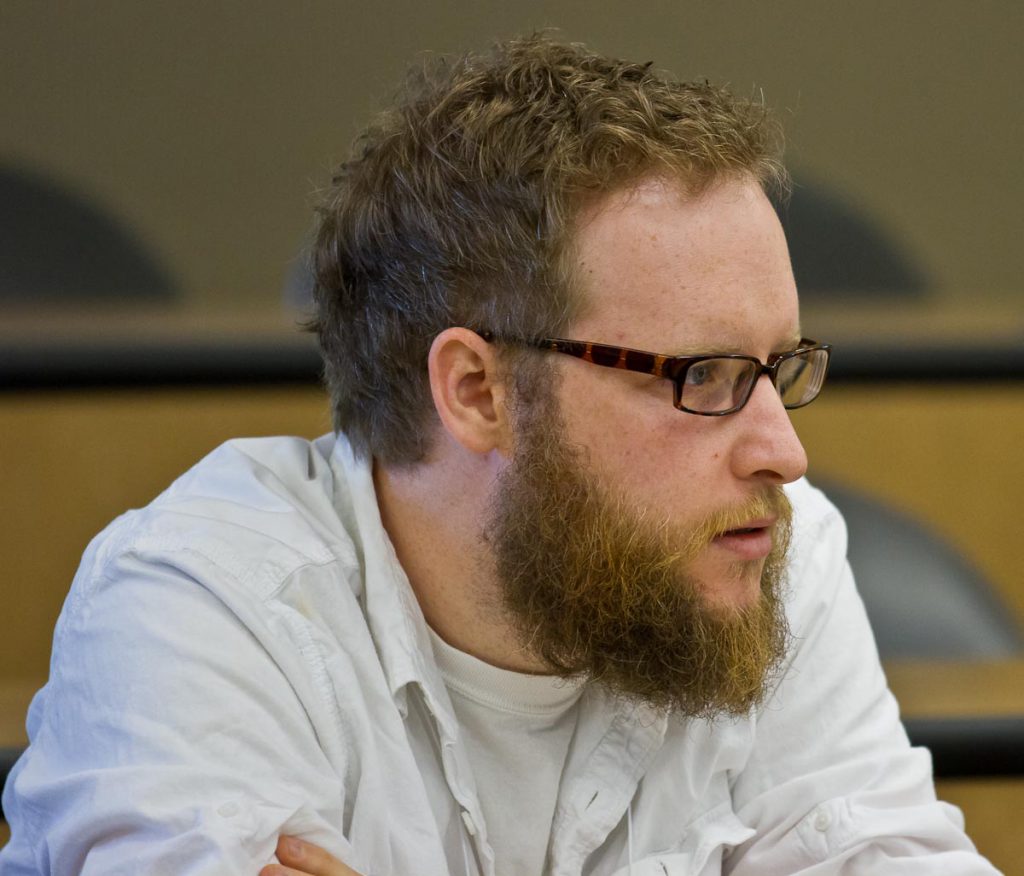
Nine Carolina faculty members, including those in the College of Arts & Sciences, were recognized as Thorp Faculty Engaged Scholars for their community engagement through scholarly endeavors. Anna Agbe-Davies, Antoine Bailliard, Leisha DeHart-Davis, Kimon Divaris, Julia Haslett, Coretta Jenerette, Alexandra Lightfoot, Enrique W. Neblett Jr. and Rachel Willis will be honored as graduates of class VI of the Thorp Faculty Engaged Scholars program during a lunch celebration at the Carolina Club in the George Watts Hill Alumni Center.
The program, an initiative of the Carolina Center for Public Service, brings together selected faculty from across campus for a two-year experiential, competency-based curriculum designed to advance their engaged scholarship. Scholars participate in sessions in community settings to learn from Carolina faculty and their community partners. While developing individual projects, each class of scholars forms a supportive learning community. The growing network of Thorp Faculty Engaged Scholars reports outcomes including new interdisciplinary collaborations, successful grant applications and both traditional and innovative products of their scholarship.
“The Thorp Faculty Engaged Scholars program built my confidence, refined my approach and grew my skill set in conducting engaged scholarship,” said Enrique Neblett, an associate professor in psychology and neuroscience in the College. “Through the program, I learned about how African-American youth and families in Southeast Raleigh view contemporary racism, the impact of these experiences on mental health and possible solutions to alleviate the suffering of those who experience racism and other social stressors. I will be forever grateful for the supportive community afforded by my fellow scholars and program colleagues, who sharpened my project and expanded my view – through sharing their own projects – of what constitutes effective, high-quality and high-impact engaged scholarship.”
The Carolina Center for Public Service created the Faculty Engaged Scholars program in 2007 to advance faculty involvement in engaged scholarship. In 2013, an endowment honoring UNC’s former chancellor H. Holden Thorp was established to support faculty in the program. Selected through a competitive process, Thorp Faculty Engaged Scholars learn about and pursue community engagement through scholarly endeavors during the two-year program. Since the program began, 63 faculty members have been selected from 12 professional schools and the College of Arts and Sciences, representing more than 28 departments.
“The Thorp Faculty Engaged Scholars training and resources enabled me to better access diverse stakeholders and places related to port planning for climate change,” said Rachel Willis, a professor in American studies in the College. “It also facilitated me participating in technical summits with governments, observing for-profit enterprises, learning from nonprofit organizations on the environment, listening to global policy practitioners and engaging residents of North Carolina port communities. The result is the development of two new courses and significant progress on a manuscript. I am in debt to the Carolina Center for Public Service and the many Faculty Engaged Scholars who have shared their methodology, field sites and advice so generously.”
The graduates and their work
These nine faculty members have distinguished themselves as engaged scholars through their commitment to serve others and strengthen university-community relationships.
Anna Agbe-Davies, an associate professor in anthropology in the College, has always approached her research program as “public archaeology”— engaged scholarship with results that matter for descendant communities, policymakers and the general public. Since 2016, she has conducted archaeological fieldwork at the childhood home of civil rights activist Pauli Murray in Durham, North Carolina where race, gender and civic activism are front and center. Her larger project brings together material and archival evidence to consider the circumstances within which African-American women developed and expressed their demands for a more just society. For Agbe-Davies, archaeology provides an opportunity to consider the actions by which ordinary people, day in and day out, responded to the challenges posed by the patriarchal and racist ideologies of their day. How did black women’s activism shape their communities in the first part of the 20th century? And what life experiences fostered the passion for equality that consumed Pauli Murray? By partnering with activists who see the importance of archaeology in their educational and social justice missions, Agbe-Davies addresses questions like these.
Antoine Bailliard, an assistant professor in Allied Health Sciences, collaborates with Assertive Community Treatment (ACT) teams and their clients. For his project, Bailliard partnered with individuals with mental illness to co-create adaptive strategies that they can integrate into their everyday lives outside of clinical settings. Using photo- and video-elicitation to highlight perspectives on how sensory processing deficits impact real-world participation in meaningful activities for adults with mental illness, the project aimed to use the data collected to co-create sensory modulation strategies that improve participation and quality of life for participants. This work fills research gaps on the impact of trait sensory processing deficits while acknowledging the expertise of adults with mental illness regarding their own lived experience.
Leisha DeHart-Davis, an associate professor, directs the UNC School of Government’s Local Government Workplaces Initiative, which taps an international network of public organizational behavior scholars to conduct research for North Carolina cities and counties. Participating cities and counties receive critical information about employees’ perspectives on a range of workplace issues, while participating academics receive on-the-ground data for pragmatic theory building and testing. Local governments serve as partners in the research, informing the development of survey instruments and interview protocols, providing feedback on study implementation and interpreting research results alongside study investigators. The Thorp Faculty Engaged Scholars experience equipped her to build stronger relationships with local government partners and to expand her outreach to practitioners who can benefit from the research. For example, DeHart-Davis commissioned a visual identity for the initiative with input from local government partners that enabled a consistent image in their outreach efforts. Without the resources of the Thorp Faculty Engaged Scholars program, she would not have fully understood the importance of developing community partners or communicating with them on a consistent basis.
Kimon Divaris, an associate professor in pediatric dentistry, is also an oral and genetic epidemiologist and board-certified pediatric dentist. His expertise and current research cover a wide range of proximal and distal oral health determinants with the goal of improving young children’s oral health and reducing associated health disparities. His project explored avenues to increase the translation rate of oral health genomics information to the public, particularly to groups that are traditionally under-represented in this type of research. In partnership with parents, health care providers, community health workers and preschool teachers, Divaris conducted qualitative work to better understand the standpoint, readiness, receipt, appreciation and potential use of genomics to bring about meaningful improvements in North Carolina’s children’s oral health.
Julia Haslett, an assistant professor in communication in the College and a documentary filmmaker, creates projects that respond to pressing social issues that impact underserved communities. Her films have explored healthcare inequities in the U.S., cross-cultural medicine, climate change in China, and the French social philosopher and activist Simone Weil. Haslett’s films have screened around the world at film festivals, theaters and universities, on television, online and in numerous community settings. Haslett’s project focused on creating a socially-engaged documentary film exploring family narratives of African-Americans living in North Carolina, specifically those that pertain to the transgenerational transmission of trauma dating back to slavery.
Coretta Jenerette, an associate professor in nursing, is committed to improving the health outcomes of people living with and managing sickle cell disease (SCD), a painful inherited hemoglobin disorder that causes less oxygen to reach vital organs and other parts of the body. Because many individuals in the sickle cell community have difficulty with finding the care they need when they seek pain management services, Jenerette worked with community partners in Durham and Wake counties to develop and test a web-based virtual training tool to help individuals living with SCD better communicate with their healthcare providers. Videos from the website depicting patient-provider scenarios have been shared with the sickle cell community and health care providers with the goal of helping individuals and families living with SCD achieve better healthcare outcomes, including relief from pain and symptoms.
Alexandra Lightfoot, a research assistant professor in public health, uses a community-based participatory research approach to address racial and ethnic health disparities with communities across North Carolina. As a Thorp Faculty Engaged Scholar, she worked on three initiatives. First, she enhanced her engaged teaching, incorporating participatory photography to facilitate explorations of racial identity with her public health students to help them develop an equity lens to bring to their work as practitioners. Second, she expanded her independent research, building a new collaboration with investigators and community partners in Western North Carolina to further adapt an adolescent sexual health intervention for public schools in a new context. Finally, she developed a new global partnership focusing on barriers to girls’ education in rural Nepal. Working with a Nepalese colleague, she is launching a participatory research program to engage rural girls and their families, gain better understanding of the barriers to girls’ education through their eyes, and identify strategies with them to increase school retention.
Enrique W. Neblett Jr., an associate professor in psychology and neuroscience in the College, conducts research that examines the link between racism and health among African-American adolescents and young adults. He is particularly interested in the role of racial identity, racial socialization and Africentric worldview as cultural protective factors that mitigate the impact of racism on mental and physical health. Neblett’s project employed photovoice, group interviews and community engagement sessions to examine issues of racial equity and mental health care disparities for African-American children, youth and families in Raleigh, North Carolina. He aspires to develop interventions and life-based learning for black youth that may assist in negotiating the negative mental and physical health consequences of individual, institutional, cultural and structural racism in the community.
Rachel Willis, a professor of American studies in the College, is a labor economist focused on access to work in the global economy. Her research on global freight transportation planning for climate change in port cities is a result of fellowships at the Institute for Emerging Issues, the Institute for the Arts and Humanities, and the Global Research Institute. Sea-level rise, drought, rising global temperatures and increased storm severity threaten port communities, influence migration, alter global foodsheds and impact future access to work through complex water connections related to infrastructure. The critical need for planning and action to meet the challenges of building resilient communities at local and global levels is central to her Water Over the Bridge project. Willis’ previous engaged scholarship projects on work access with respect to childcare, education, transportation and disability have resulted in long-term university/community collaborations across North Carolina.




